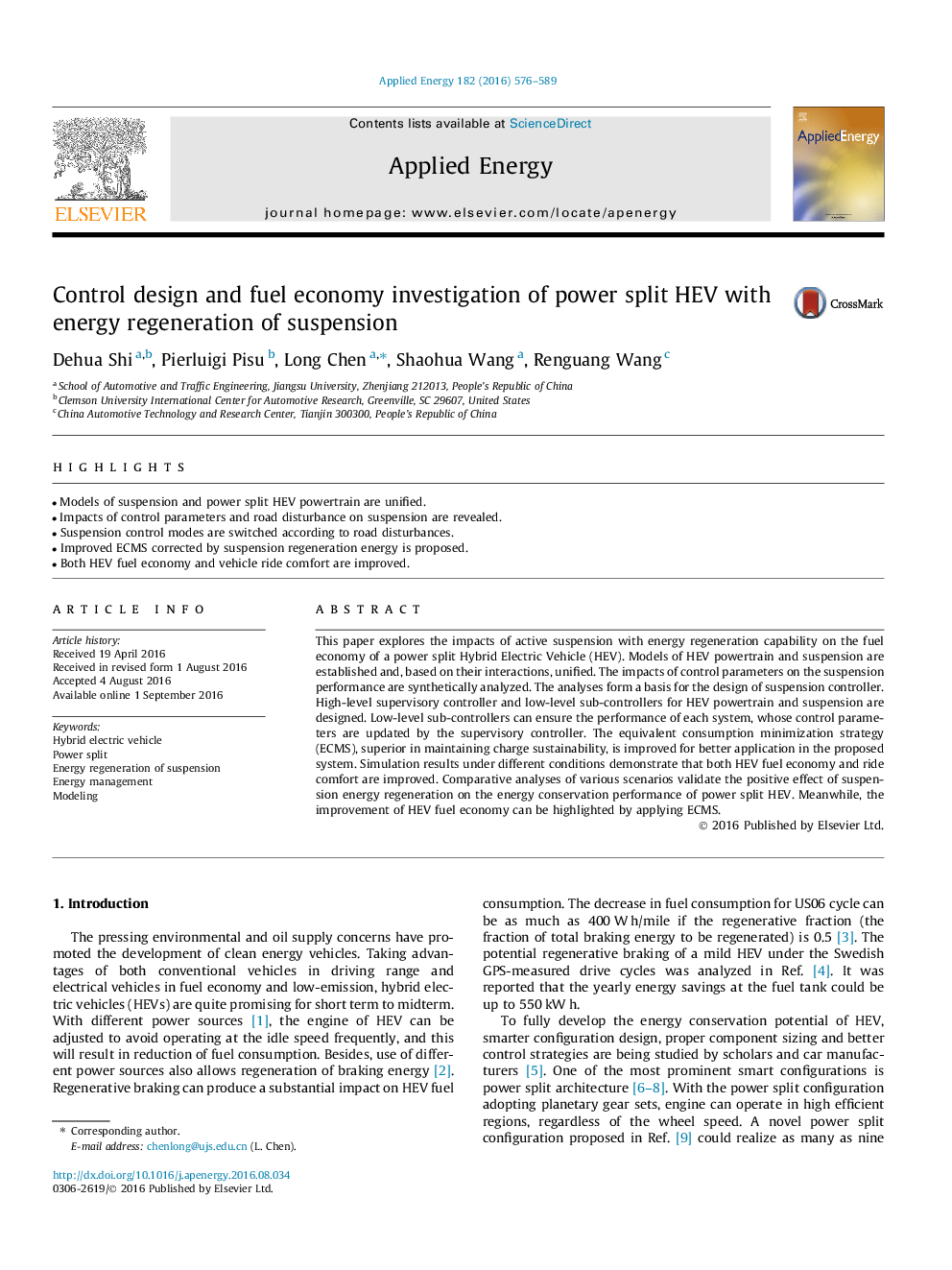| Article ID | Journal | Published Year | Pages | File Type |
|---|---|---|---|---|
| 6478965 | Applied Energy | 2016 | 14 Pages |
â¢Models of suspension and power split HEV powertrain are unified.â¢Impacts of control parameters and road disturbance on suspension are revealed.â¢Suspension control modes are switched according to road disturbances.â¢Improved ECMS corrected by suspension regeneration energy is proposed.â¢Both HEV fuel economy and vehicle ride comfort are improved.
This paper explores the impacts of active suspension with energy regeneration capability on the fuel economy of a power split Hybrid Electric Vehicle (HEV). Models of HEV powertrain and suspension are established and, based on their interactions, unified. The impacts of control parameters on the suspension performance are synthetically analyzed. The analyses form a basis for the design of suspension controller. High-level supervisory controller and low-level sub-controllers for HEV powertrain and suspension are designed. Low-level sub-controllers can ensure the performance of each system, whose control parameters are updated by the supervisory controller. The equivalent consumption minimization strategy (ECMS), superior in maintaining charge sustainability, is improved for better application in the proposed system. Simulation results under different conditions demonstrate that both HEV fuel economy and ride comfort are improved. Comparative analyses of various scenarios validate the positive effect of suspension energy regeneration on the energy conservation performance of power split HEV. Meanwhile, the improvement of HEV fuel economy can be highlighted by applying ECMS.
